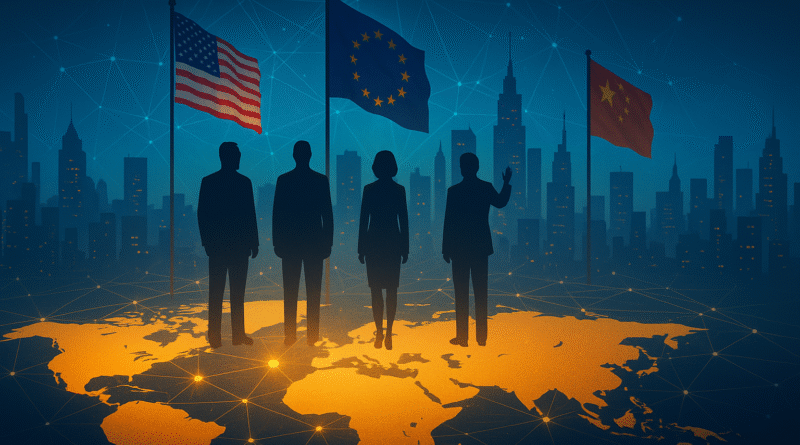Global Politics in 2025: Populism, Protectionism, and the Rise of AI Governance
Populism Is Making a Strong Comeback
The political landscape in 2025 is being reshaped by a powerful resurgence of populist movements. Across Europe, Asia, and the Americas, politicians tapping into national pride, economic dissatisfaction, and cultural fears are gaining ground.
Voters, frustrated by years of inequality and perceived government inaction, are turning toward leaders who promise radical reforms, often at the expense of traditional democratic norms. This shift signals a deepening divide between establishment politics and rising grassroots movements.
Protectionism and Economic Shifts
Protectionism is no longer a trend limited to isolated regions — it has become a defining feature of global politics.
Countries are increasingly focusing inward, imposing tariffs, tightening trade agreements, and incentivizing domestic industries over foreign partnerships.
The globalized economy is being challenged by national strategies that prioritize self-reliance and resource security. While this might boost short-term growth for some nations, it risks triggering wider trade conflicts and long-term instability.
Artificial Intelligence Enters the Political Arena
Artificial Intelligence is no longer just a tech issue — it’s becoming a central political concern.
Governments worldwide are racing to regulate AI development and deployment, balancing innovation with ethical concerns like privacy, surveillance, and labor market disruption.
Without a unified international framework, AI governance remains fragmented, raising fears about misuse, algorithmic bias, and widening inequality between tech-rich and tech-poor nations.
In 2025, controlling AI isn’t just about technology — it’s about power.
Democracy Under Pressure
Another worrying trend is the weakening of democratic institutions.
Across the globe, we are witnessing a gradual erosion of judicial independence, media freedom, and electoral fairness.
In some cases, leaders are subtly undermining democratic norms under the guise of “protecting national interests.”
This creeping authoritarianism, often cloaked in populist rhetoric, is forcing citizens and watchdog organizations to fight harder than ever to defend basic democratic principles.
Climate Change: Still a Divisive Battlefield
Despite growing public awareness, climate change remains a highly polarized topic in political arenas.
While some governments push forward with aggressive green energy policies and international climate agreements, others roll back environmental regulations, citing economic hardships and energy independence.
This divide is preventing coordinated action on a global scale, threatening efforts to mitigate the climate crisis before it’s too late.
Summary:
In 2025, global politics is defined by a wave of populism, rising protectionism, urgent debates over AI governance, and growing threats to democratic stability. As nations grapple with internal and external challenges, the need for cooperation, innovation, and transparent leadership has never been greater.

